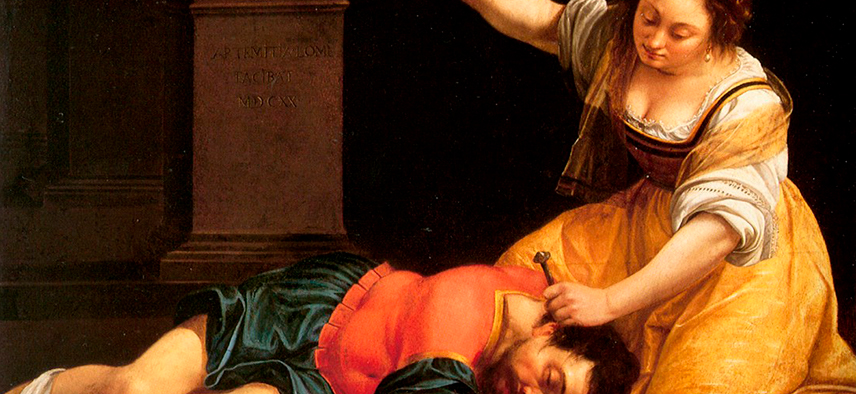Notice these two texts in the Book of Judges about the death of Sisera, commander of the army of Jabin, King of Canaan, who was at war with Israel. The first is narrative; the second, poetic (a psalm, in fact, composed by Deborah and Baraque).
Then Jael, Heber’s wife, took a stake from the tent and, with the help of a hammer, quietly approached him [of Sisara] and stuck the stake in his sien, so that he penetrated the earth. He was exhausted and slept soundly; and so he died (Judges 4. 21? NAA)
- She reached out and took the stake.
- And with her right hand took the workers’ hammer.
- He hit Sisara.
- Broke his head.
- Went through him and pierced his siens.
- At his feet he bowed.
- Fell and lay down; at his feet he bent down and fell; where he bent.
- Fell dead (Judges 5.
- 26?27? NAA).
In the narrative text, we have that Sisera was assassinated while “sleeping soundly”. The second tells us that, at Jael’s feet, Sisera “doubled over, fell, and stretched,” implying that he was still standing when he was attacked. right, anyway?
Both texts. For the narrative text describes the fact, the pure moment, while the poetic condenses reality into symbolic language.
Earlier in chapter 4, Deborah had told Barac that “Will the Lord deliver Sisara into the hands of a woman?”(V. 9). And in fact, this is what happened: Sisara’s troops were defeated and he escaped on foot to the tent of Jael, wife of Heber, the Kenyan, because there was peace between Jabin, king of Hazor, and the house of Heber, the Kenyan. (v. 17). What Deborah and Baraque’s song does in Judges 5. 27 is simply create an image of Sasera’s downward spiral: the one who came standing in front of Jael, leans over, falls and ends up stretching, da Silva dead. It’s the action in pictures. . It’s imagination. It’s poetry.
There are at least two more interesting details in the poetic text. Is the first one here? Princes Cup? Where Sisara drank the milk offered to her by Jael (Thu 5:25). In the narrative text, is it only said that she gave him a drink?The detail of the cut in the poetic text makes all the difference even to allow us to better understand the narrative text, because it reveals Jael’s cunning to befriend Ssera giving him the best and the best when he had actually asked him. her just for water.
The second detail, which appears only in the same poetic text, is the expectation of Sisara’s mother at the delay of her son returning with his battle tanks (Jz 5:28). that Sisara was busy collecting israel’s loot, which included colorful and embroidered women and fabrics for Sisara and even a scarf for his wife (Thu 5:29). But Sisara, holy irony, put upon him (Thu 4:18). A blanket with the colors of death? And the same death.

